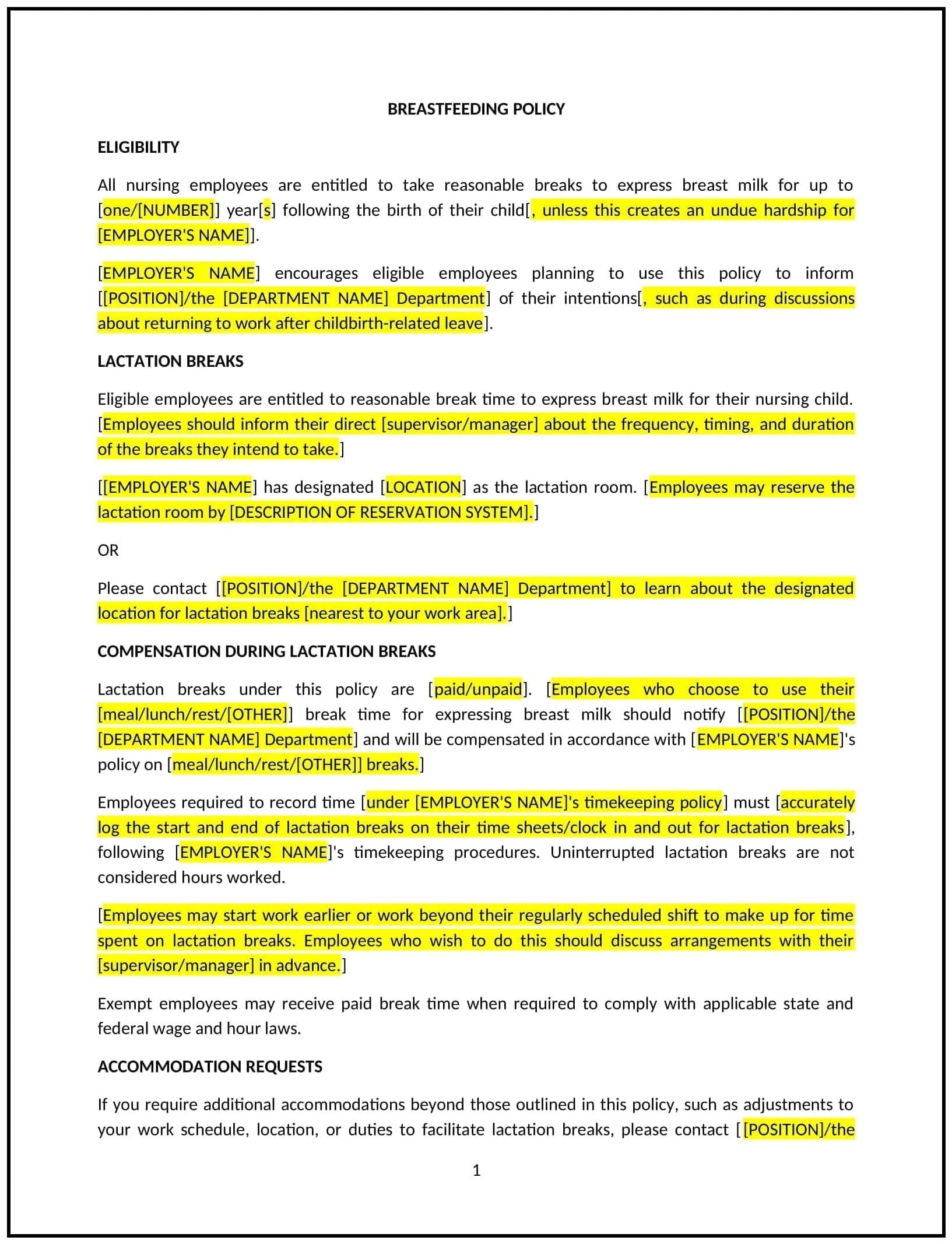Breastfeeding break policy (Pennsylvania): Free template
Got contracts to review? While you're here for policies, let Cobrief make contract review effortless—start your free review now.

Customize this template for free
Breastfeeding break policy (Pennsylvania)
This breastfeeding break policy is designed to help businesses in Pennsylvania provide employees with the necessary support and accommodations to express milk during work hours. Whether managing compliance with federal regulations like the Fair Labor Standards Act (FLSA) or Pennsylvania-specific workforce needs, this template outlines clear guidelines for creating a supportive work environment for breastfeeding employees.
By using this template, businesses can promote employee well-being, enhance workplace inclusivity, and align with legal requirements for lactation accommodations.
How to use this breastfeeding break policy (Pennsylvania)
- Define eligibility: Specify which employees are eligible for breastfeeding breaks, such as non-exempt employees covered under the FLSA or other classifications.
- Outline break allowances: Provide details on the frequency and duration of breaks for expressing milk, ensuring they align with business operations and the needs of the employee.
- Designate lactation spaces: Ensure the policy includes a description of the private, non-bathroom space provided for breastfeeding employees to express milk.
- Address communication procedures: Include steps for employees to request breastfeeding accommodations and identify whom they should contact within the organization.
- Reflect Pennsylvania-specific considerations: Tailor the policy to align with local workforce practices and the unique needs of Pennsylvania’s industries, such as healthcare or education.
Benefits of using a breastfeeding break policy (Pennsylvania)
A well-structured breastfeeding break policy supports employee well-being and workplace inclusivity. Here's how it helps:
- Promotes employee health: Supports breastfeeding employees by providing the time and space needed to express milk, contributing to their health and well-being.
- Encourages inclusivity: Demonstrates a commitment to supporting working parents and fostering a family-friendly workplace.
- Reduces workplace stress: Offers clear accommodations that help employees balance work responsibilities with breastfeeding needs.
- Enhances retention: Increases employee satisfaction and loyalty by addressing the needs of new parents.
- Reflects compliance: Aligns with Pennsylvania and federal laws regarding lactation accommodations, supporting workplace fairness and legal adherence.
Tips for using a breastfeeding break policy (Pennsylvania)
- Communicate expectations: Share the policy with employees during onboarding or parental leave discussions to ensure they understand their rights and options.
- Train managers: Equip supervisors with the knowledge to handle breastfeeding accommodation requests and ensure proper implementation of the policy.
- Provide suitable spaces: Ensure that lactation spaces are private, clean, and accessible, meeting the needs of breastfeeding employees.
- Monitor feedback: Regularly gather feedback from employees on the effectiveness of accommodations and make improvements as needed.
- Review periodically: Update the policy to reflect changes in Pennsylvania labor laws, federal regulations, or workplace practices.